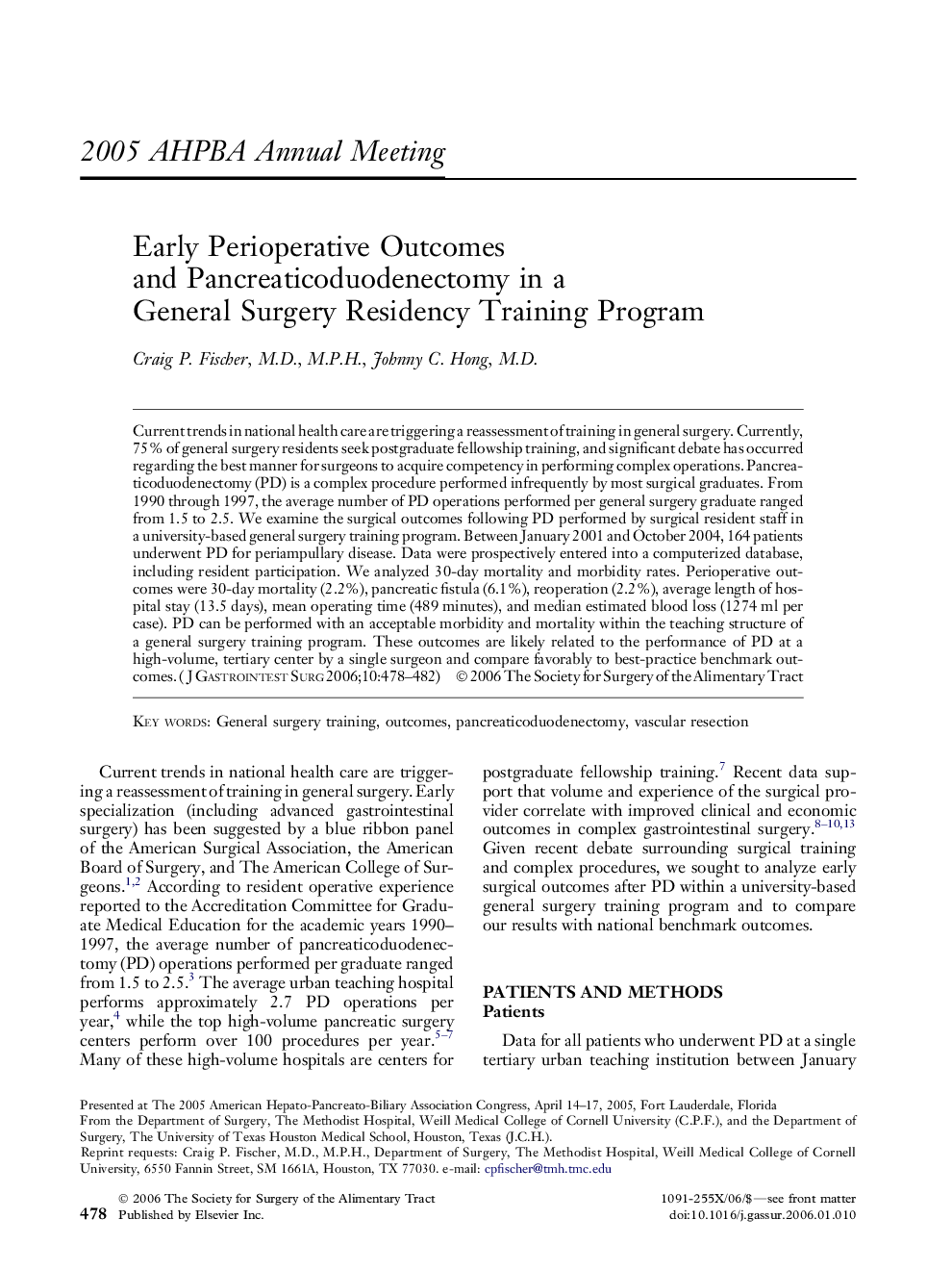| Article ID | Journal | Published Year | Pages | File Type |
|---|---|---|---|---|
| 4297198 | Journal of Gastrointestinal Surgery | 2006 | 5 Pages |
Abstract
Current trends in national health care are triggering a reassessment of training in general surgery. Currently, 75% of general surgery residents seek postgraduate fellowship training, and significant debate has occurred regarding the best manner for surgeons to acquire competency in performing complex operations. Pancreaticoduodenectomy (PD) is a complex procedure performed infrequently by most surgical graduates. From 1990 through 1997, the average number of PD operations performed per general surgery graduate ranged from 1.5 to 2.5. We examine the surgical outcomes following PD performed by surgical resident staff in a university-based general surgery training program. Between January 2001 and October 2004, 164 patients underwent PD for periampullary disease. Data were prospectively entered into a computerized database, including resident participation. We analyzed 30-day mortality and morbidity rates. Perioperative outcomes were 30-day mortality (2.2%), pancreatic fistula (6.1%), reoperation (2.2%), average length of hospital stay (13.5 days), mean operating time (489 minutes), and median estimated blood loss (1274 ml per case). PD can be performed with an acceptable morbidity and mortality within the teaching structure of a general surgery training program. These outcomes are likely related to the performance of PD at a high-volume, tertiary center by a single surgeon and compare favorably to best-practice benchmark outcomes.
Related Topics
Health Sciences
Medicine and Dentistry
Surgery
Authors
Craig P. M.D., M.P.H., Johnny C. M.D.,
